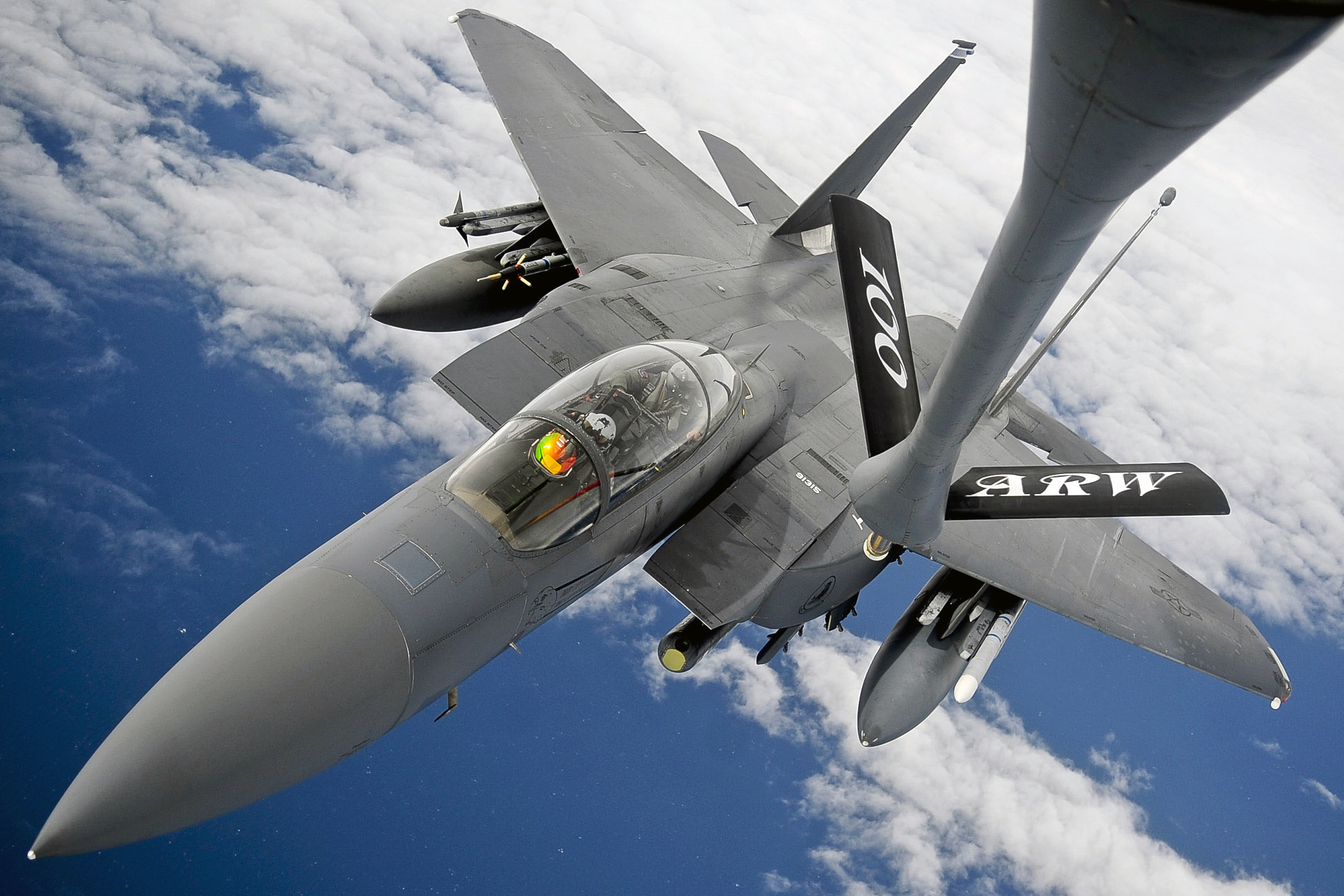
 Refueling Wing KC-135 Stratotanker during an aerial refueling mission Sept. 10, 2012, over the Atlantic Ocean. (Photo Courtesy U.S. Air Force by /Senior Airman Ethan Morgan)
Refueling Wing KC-135 Stratotanker during an aerial refueling mission Sept. 10, 2012, over the Atlantic Ocean. (Photo Courtesy U.S. Air Force by /Senior Airman Ethan Morgan)
As reported here, the U.S. is providing strategic airlift support to the French military intervention in Mali -- lift that so far has delivered hundreds of French troops and hundreds of tons of supplies.
The U.S. has also been providing intelligence data, including satellite imagery to the French.
One sticky point in American support to France has been "whether and how to supply American aerial refueling planes that would allow French jets to provide close-air support to ground forces moving north into territory held by the extremists."
French and American officials have been discussing this issue for several days and on Friday President Obama talked by phone with French President Hollande.
Following that call, Secretary Panetta spoke today to French Minister of Defense Jean-Yves Le Drian to discuss U.S. support for the international community's efforts to deny terrorists a safe haven in Mali.
On Saturday, the Department of Defense announced that, after commending Minister Le Drian for France's strong leadership in the efforts to deny terrorists a safe haven in Mali, "Secretary Panetta informed Minister Le Drian that U.S. Africa Command will support the French military by conducting aerial refueling missions as operations in Mali continue."
According to Pentagon Press Secretary George Little, "The leaders also discussed plans for the United States to transport troops from African nations, including Chad and Togo, to support the international effort in Mali. Secretary Panetta and Minister Le Drian resolved to remain in close contact as aggressive operations against terrorist networks in Mali are ongoing."
The aerial refueling issue is a specially sensitive one as it "would bring the American involvement to a new level, directly supporting military attacks" and "for Mr. Obama, who devoted part of his Inaugural Address on Monday to a celebration of the end of a war in Iraq and the winding down of the American commitment in Afghanistan, the prospect of getting involved in a conflict against a shadowy enemy far from the United States is unwelcome," according to the New York Times.
The Times adds:
Most of the reservations about whether Obama has the legal authority to engage in military operations were resolved, officials said, after it was determined that the main targets were linked to Al Qaeda in the Islamic Maghreb. But the degree to which President Obama wants to get involved in Mali is still an open question, presenting the president and his national security team with the latest in a series of decisions about how heavily to intervene in remote conflicts.
The Washington Post, also reporting on this development, mentions that the French requests for more "robust support" from the U.S. raised a legal dilemma because "U.S. law forbids foreign assistance funds to leaders that came to power through a coup. Mali's military leaders, including some trained by U.S. troops, seized power."
But the Post adds:
The United States has concluded the expanded assistance is legally sound due to France's notification to the United Nations Security Council that its mission in Mali is being offered at the request of the African country's government, which is fighting "terrorist elements," Pentagon spokesman Lt. Col. James Gregory said in a statement.
"Under these circumstances, the U.S. can lawfully provide support to France's efforts in the armed conflict in Mali," Gregory said. Gregory said the coup bars "foreign assistance funds," not military support. "We remain mindful of, and are carefully taking into account the coup restrictions as our plans for assistance develop," he added.
